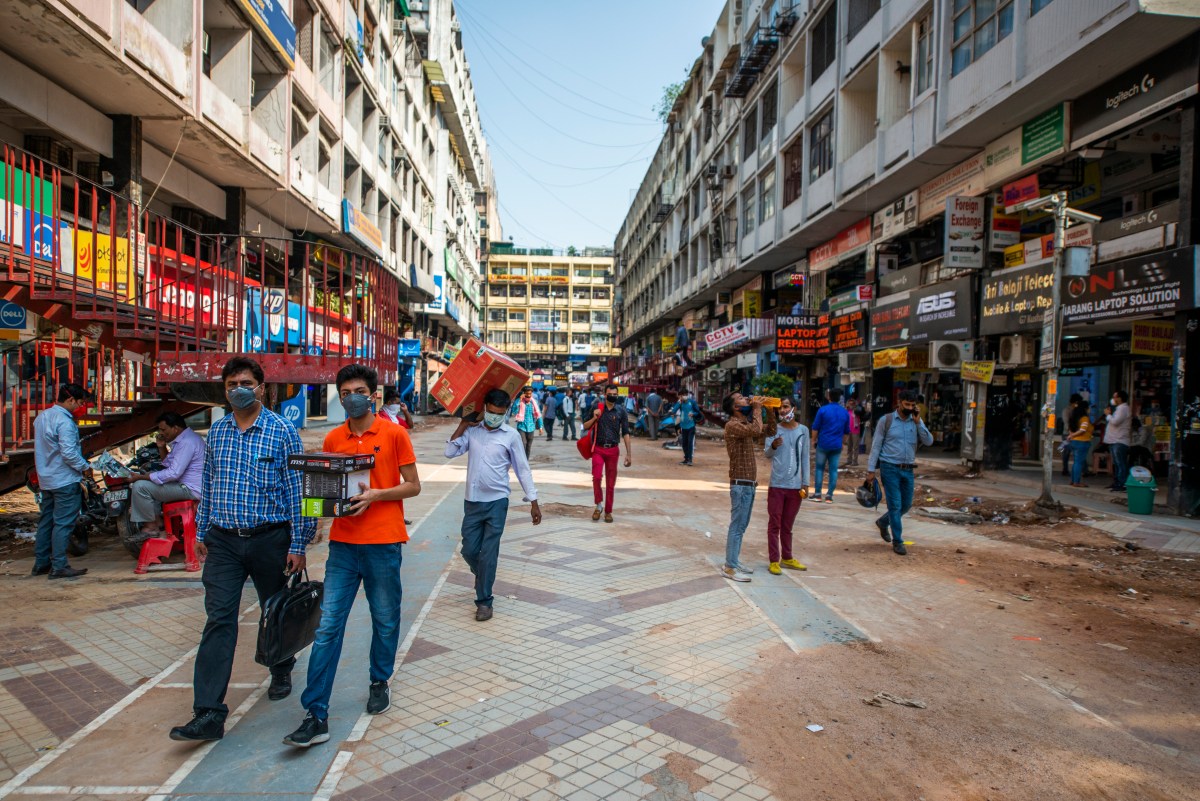Ukraine reveals death toll of prisoners in Russian captivity
Torture of Ukrainian POWs systematic and "encouraged," says UN.

BRUSSELS — At least 177 Ukrainian prisoners have died in Russian captivity since the Kremlin’s full-scale invasion of the country, according to new figures by Ukraine’s Defense Ministry.
Thousands of others are at great risk.
“The more time they spend in Russian prisons, the closer they are to death,” said Viktoriia Tsymbaliuk, a representative for the Coordination Headquarters for the Treatment of Prisoners of War, a branch of the Ukrainian Defense Ministry.
Tsymbaliuk said that because of the lack of international oversight, the real number of deaths in Russian custody was likely much higher. “This is the number that we have,” she said. “But of course, not all the bodies are returned and many are not even confirmed by Russia as being in captivity.”
Regular prison swaps between Moscow and Kyiv have seen the return of some 3,600 Ukrainian prisoners of war and deported citizens. But thousands are still believed to be in Russian hands.
Russia’s mistreatment of prisoners has been widely reported for years. A crackdown on civil society and independent monitors has facilitated the normalization of violence and provided prison officials with a feeling of impunity.
Ukrainian POWs have it even worse, according to a report published on Thursday by the U.N. Office of the High Commissioner for Human Rights. The report noted that torture of captured military personnel was “widespread and systematic” and occurred with the blessing of Russia’s leadership.

“Some public figures in the Russian Federation have explicitly encouraged inhumane treatment, and even killing, of Ukrainian POWs,” the report said. It added it had recorded 11 Ukrainian deaths plus an unspecified number of suicide attempts and “one documented case of suicide reportedly because of repeated acts of torture” since March 2023.
Danylo Kravets, a 23-year-old international affairs student from Lviv who became a drone pilot following the full-scale invasion, spent 175 days in four places of incarceration before being released in a prison swap in April last year.
“Torture, beatings, it’s a regular thing for me,” he told POLITICO with hair-raising coolness.
After being captured near Vuhledar in November 2022, he was told to choose between losing his finger or his leg and subjected to a mock execution.
Once he arrived in a prison in Donetsk “our heads were covered and we were told to undress,” he said. “They always tell you to undress,” he repeated, briefly summarizing what happened after as “sexual violence.”
A tattoo on his body depicting a mountain was reason for prison guards to conclude he must be a flight risk and “break my legs.”
“`They’re really good at finding a reason to torture or beat you,” said Kravets, who lost 16 kilos in captivity.
The U.N. has listed instances of POWs resorting to eating worms, soap or paper to still their hunger. Other reported practices of abuse include prisoners having needles inserted under their nails, asphyxiation and the threat of animal attacks, as well as the forced singing of Russian patriotic songs and the witnessing of others being tortured.

The Geneva Conventions, the rules encoding the treatment of POWs, states that countries at war should allow independent monitors unlimited access to captives and permit them to send or receive letters. Russia has a spotty record when it comes to both, the U.N. has said.
Tsymbaliuk said Russia refuses to confirm thousands of prisoners’ captivity or whereabouts, leaving their desperate relatives guessing daily whether their loved ones were still “on earth or in Heaven.”
The U.N. also listed cases of torture of Russian POWs captured by Ukrainians but noted those stopped once they entered the prison system. Independent monitors have unrestricted access to Russian POWs.
Kateryna Nazarii, 32, said she had not spoken or heard from her husband since he was taken captive near Mariupol 830 days ago.
Shortly after he went missing, she found out he was in Russian hands from a harrowingly explicit video on a pro-Kremlin Telegram channel.
Since then, she learned from released Ukrainian prisoners that he is being held in a facility in Luhansk in occupied Ukraine, though Russian authorities have repeatedly denied having any knowledge of him.
Nazarii said she feels a surge of fear each time her phone rings, worried it will bring news of her husband’s death.
“We are returning to the Middle Ages,” she said. “If the world stays silent now, Russia will take it as a sign it can continue with impunity.”
What's Your Reaction?



























:quality(85):upscale()/2024/12/02/919/n/1922398/2b4b75f6674e20edcc99c3.42112799_.jpg)
:quality(85):upscale()/2024/10/29/690/n/1922398/e9bec6b46721006258d949.01358236_.jpg)
:quality(85):upscale()/2024/10/10/868/n/1922283/ab92f44867083000877668.26101188_.jpg)
:quality(85):upscale()/2024/10/09/794/n/1922283/3f35cdf56706c5a92ddff9.14514426_.jpg)
:quality(85):upscale()/2024/09/19/895/n/1922283/e654c37d66ec89a3911ce6.42966442_.png)
















